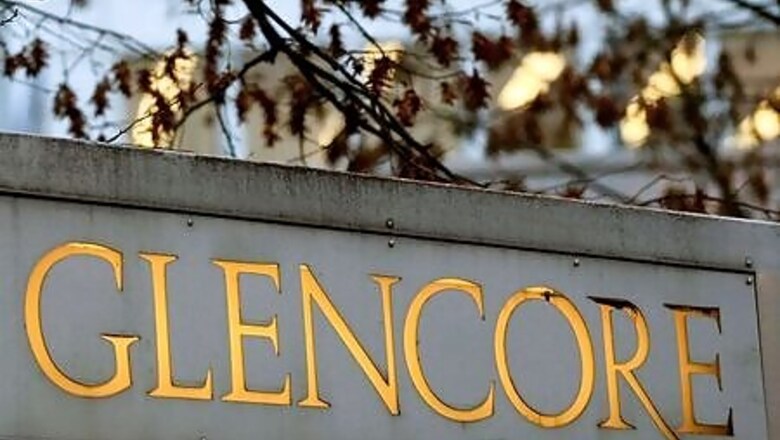
views
LONDON Glencore became the first major mining company to scrap its dividend this year, saying on Thursday that the economic outlook was too uncertain because of the coronavirus pandemic and it would instead focus on cutting its debt.
The company said its net debt jumped to $19.7 billion in the first half of the year from $17.6 billion at the end of 2019, mainly because of a fall in oil prices, and that it was also booking a $3.2 billion charge.
Glencore shares listed in London had slumped nearly 3.7% by 0750 GMT, compared to a 2.6% drop in the broader index that includes its rivals.
“The board has concluded that it would be inappropriate to make a distribution to shareholders in 2020, instead prioritising the acceleration of net debt reduction to within our target range,” Chief Executive Ivan Glasenberg said.
Glencore, which both mines and trades commodities worldwide, had expected to pay $2.6 billion in dividends this year. Rivals Rio Tinto and Anglo American have already gone ahead with their payouts.
Glencore’s adjusted earnings before interest, taxes, depreciation and amortisation (EBITDA) fell 13% to $4.8 billion in the six months to June from a year earlier, beating the $4.3 billion expected by 14 analysts in a survey compiled by Vuma.
Oil market volatility helped Glencore’s trading divisions post record adjusted earnings before interest and taxes (EBIT) of $2 billion and the company expects to be at the top end of the $2.2 billion to $3.2 billion range by the end of the year.
However, the miner posted a net loss of $2.6 billion in the first-half, down from a profit of $226 million a year ago.
Glencore’s trading divisions set it apart from other mining groups and it has proved more resilient during commodity downturns. Some of Glencore’s rivals on the oil trading front such as Gunvor and Mercuria have also posted strong results.
“Glencore’s value is attractive, its balance sheet robust and commodity mix well positioned for recovery,” analysts at UBS said. “We expect it to outperform as visibility improves on management change, deleveraging, regulatory investigations and the turnaround of African Copper.”
Energy products including oil and coal accounted for 70% of earnings at Glencore’s trading divisions with a record $1.4 billion thanks to “exceptional price movements and dislocations across crude oil and refined products, combined with soaring demand for and prices of storage and logistics”.
But the good performance, where Glencore put more oil into carry trades, meant its net debt rose well above the consensus forecast of $18.1 billion.
Glasenberg told a conference call that cash flow would help it lower debt below its cap of $16 billion by the end of 2020.
A more leveraged balance sheet brought Glencore to the brink during the previous commodities crash in 2015-16, and led to a downgrade in its credit ratings.
Glencore doesn’t own iron ore mines, meaning it missed a price rally that benefited rivals such as Rio and BHP.
Disclaimer: This post has been auto-published from an agency feed without any modifications to the text and has not been reviewed by an editor



















Comments
0 comment